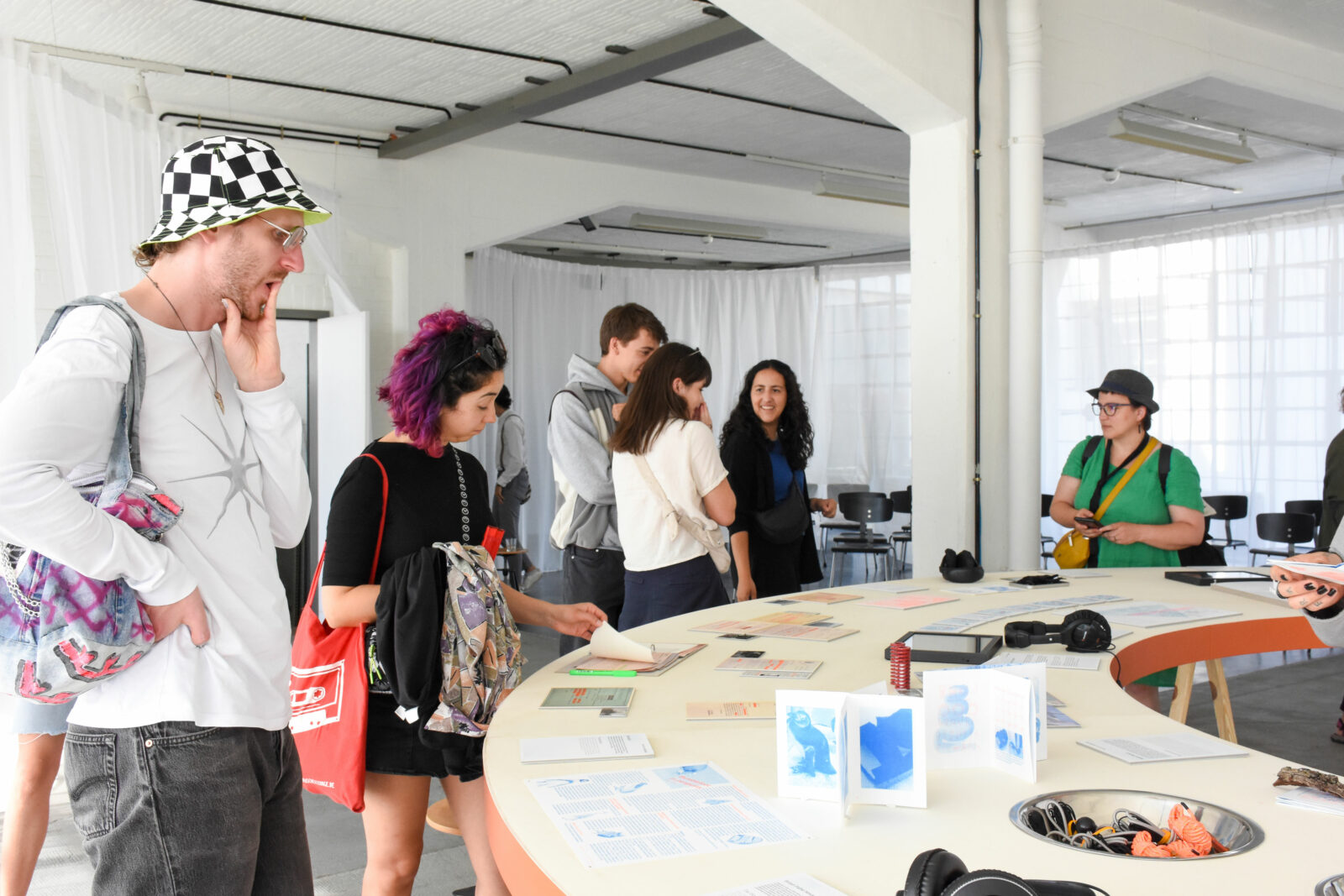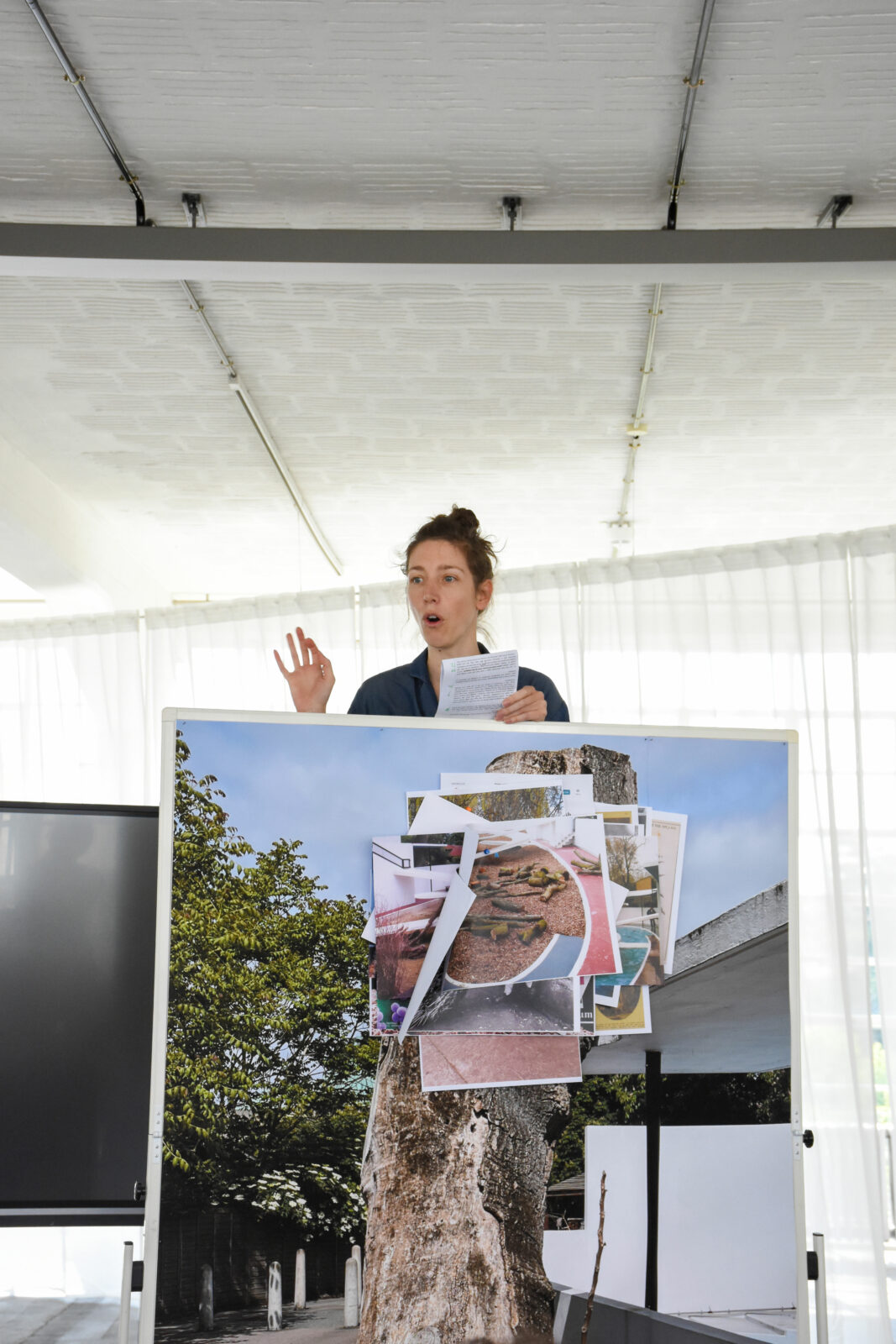Not a Penguin Pool:
Echoes of More-than-Human Entanglements
Exhibition
21 July 2023 – 11 Feb 2024, Bauhaus Building
In the Spring of 2023, a team of researchers were invited by the Academy of the Bauhaus Dessau Foundation to explore the early modernist Penguin Pool built by Berthold Lubetkin and the Tecton group in collaboration with Ove Arup 1934 at the London Zoo. In the years since, the structure has been well celebrated for its iconic architecture and well critiqued for its inadequacy in housing penguins, the last of which were removed in 2004. There is no such thing as a good design for a cage.
After praise and after critique, at the center of the bustling zoo, the quiet pool remains a darkly and comically alluring ghost. The research team entered the pool and its archives here, to notice, reflect and share subjective readings. Collectively, the exhibition explores epistemologies of the Penguin Pool through a spectrum of theoretical, biological, and cultural phenomena, between architecture, historiography, and more-than-human entanglements. These many ways of thinking about the pool are expressed in archival artefacts, artistic positions, texts and performative practices. The collectively devised display , a 1:1 scale transfiguration of the pool in the metal workshop creates a resonant space for the multiple conversations with the pool and its far-reaching geographies between the Zoo in London, the site of the exhibition in the Bauhaus Dessau, the Antarctic habitats the pool has taken from, and beyond.



Symposium
20 July 2023, Bauhaus Building
A symposium will also take place to mark the end of this year’s Bauhaus Lab, towards unsettling the monumentality of the Penguin Pool as an iconic piece of modernist architecture. The invited guests and participants will discuss the pool from multiple perspectives, focusing on migration and colonial entanglements, mapping geographies, human and other-than-human relations, and multispecies symbiosis. From these exchanges, the event aims to illuminate some of the epistemologies, materialities and legacies of modernist logics of inhabitation at the Penguin Pool, and to slip past them.
With Polly Gould (United Kingdom), Catarina Madruga (Germany) and Alexandra Nehmer (Germany).
Not a Penguin Pool: Echoes of More-than-Human Entanglements is a collective work developed by an international group of invited artists, architects, curators, and researchers. The 2023 Bauhaus Lab participants are: Andrea Palášti, Daniella Camarena, Julieta Pestarino, Nicolás Penna, Patricia Roig Canepa, Sarah Kantrowitz, and Yujia Bian, supported by Regina Bittner and Philipp Sack (Academy of the Bauhaus Dessau Foundation).


